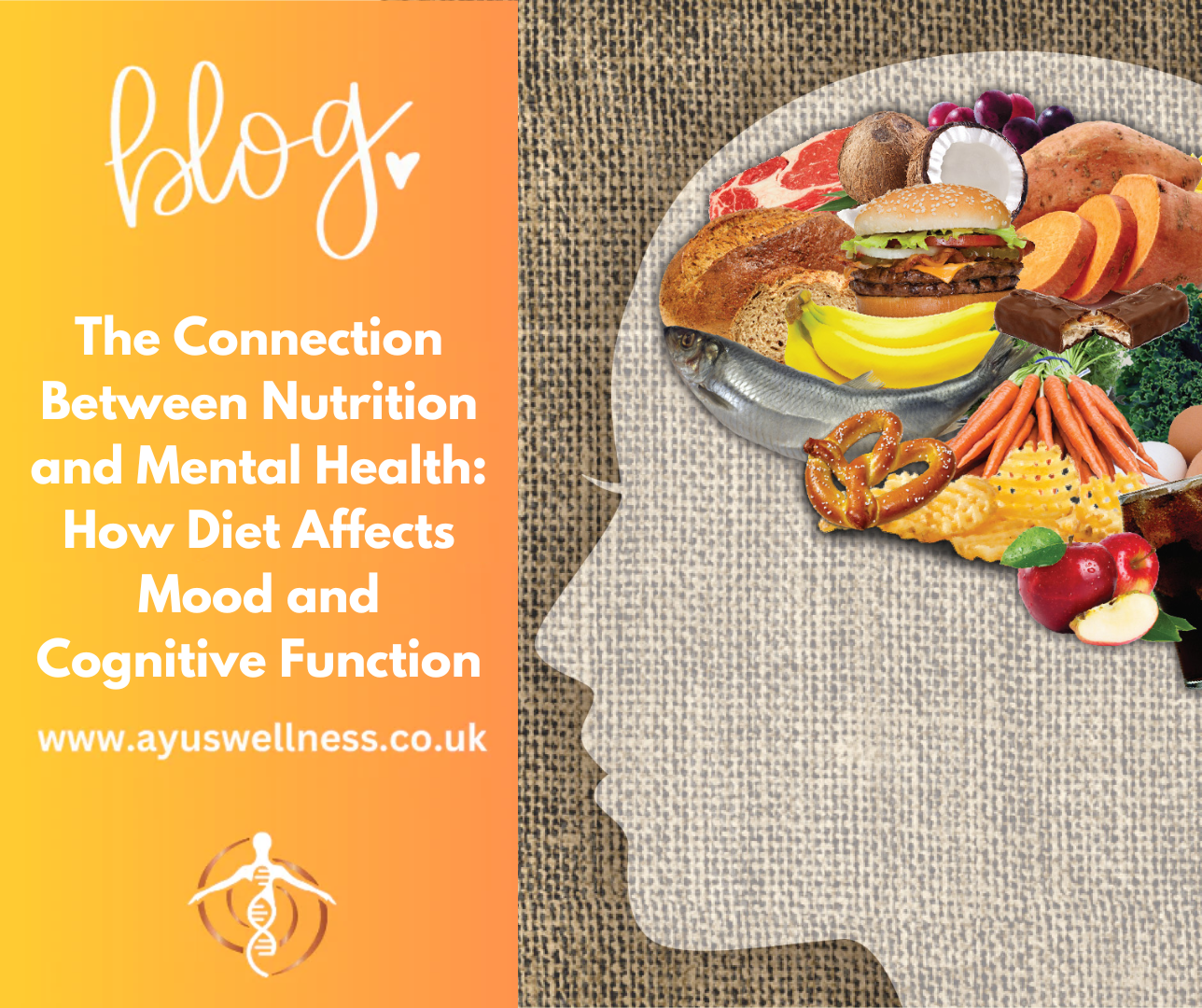
Maintaining good mental health is not just about psychological factors; it also involves paying attention to what we eat. In this blog post, we'll explore the intricate connection between nutrition and mental well-being, shedding light on how our diet influences mood, cognition, and overall mental health.
Introduction:
The saying "you are what you eat" holds true not only for physical health but also for mental well-being. Research has shown that the foods we consume play a significant role in shaping our mood, cognitive function, and overall mental health. Understanding the link between nutrition and mental health can empower individuals to make informed dietary choices that support their psychological well-being.
- Nutrients for Mental Health:
- Omega-3 fatty acids: Found in fatty fish, nuts, and seeds, omega-3s are essential for brain health and have been linked to reduced risk of depression and anxiety.
- Antioxidants: Fruits, vegetables, and spices rich in antioxidants help protect the brain from oxidative stress and inflammation, promoting mental resilience and cognitive function.
- B vitamins: Foods like leafy greens, legumes, and whole grains provide essential B vitamins that play a crucial role in neurotransmitter synthesis and energy production, supporting mood regulation and mental clarity.
- Magnesium: Nuts, seeds, and leafy greens are excellent sources of magnesium, a mineral involved in stress management and relaxation, which can help alleviate symptoms of anxiety and promote better sleep.
- The Gut-Brain Connection:
Emerging research has highlighted the intricate relationship between the gut and the brain, known as the gut-brain axis. The gut microbiome, composed of trillions of bacteria residing in the digestive tract, plays a crucial role in regulating mood, behavior, and cognitive function. Consuming a diet rich in fiber, probiotics, and prebiotics can promote a healthy gut microbiome, supporting mental well-being.
- Foods That Boost Mood and Cognitive Function:
Complex carbohydrates: Whole grains, fruits, and vegetables provide sustained energy and promote the production of serotonin, a neurotransmitter associated with mood regulation and emotional balance.
Lean proteins: Foods like poultry, fish, tofu, and legumes supply essential amino acids necessary for neurotransmitter synthesis, supporting optimal brain function and mood stability.
Plant-based foods: Incorporating a variety of colorful fruits, vegetables, nuts, seeds, and legumes into your diet ensures a diverse array of nutrients that promote brain health and mental resilience.
- The Impact of Diet on Mental Health Disorders:
Research suggests that dietary patterns, such as the Mediterranean diet or the DASH (Dietary Approaches to Stop Hypertension) diet, may lower the risk of depression, anxiety, and other mental health disorders. Conversely, diets high in processed foods, sugar, and unhealthy fats have been associated with increased risk of mood disorders and cognitive decline.
Conclusion:
The connection between nutrition and mental health is undeniable, with dietary factors playing a significant role in shaping our psychological well-being. By prioritizing nutrient-dense foods that support brain health and fostering a healthy gut microbiome, individuals can proactively enhance their mental resilience, mood, and cognitive function. Empowered with knowledge about the impact of diet on mental health, we can take proactive steps to nourish our minds and bodies for optimal well-being.



